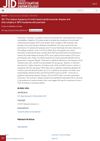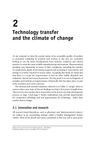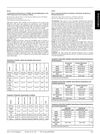11 citations,
April 2020 in “Animals” Moving horses to new places can increase their stress levels, as shown by higher stress hormone in their hair.
8 citations,
July 2017 in “The journal of investigative dermatology/Journal of investigative dermatology” Certain microRNAs might help identify and understand Frontal Fibrosing Alopecia.
 1 citations,
January 2013 in “Advanced Biomedical Research”
1 citations,
January 2013 in “Advanced Biomedical Research” Men with more severe hair loss had a lower risk of schizophrenia, but hair loss and testosterone levels were not linked.
 April 2023 in “Journal of Investigative Dermatology”
April 2023 in “Journal of Investigative Dermatology” Psoriasis patients did not show more brain atrophy or small vessel disease than controls, but longer psoriasis duration was linked to more brain atrophy.
 21 citations,
January 2015 in “Dental research journal”
21 citations,
January 2015 in “Dental research journal” Women with PCOS may be more likely to have gum disease than healthy women.
15 citations,
July 2021 in “JAMA Dermatology” Androgenetic alopecia negatively affects quality of life and self-esteem, especially in women, but not depression.
9 citations,
August 2021 in “Experimental dermatology” Hidradenitis suppurativa is a skin disease caused by the breakdown of the skin's natural immune barriers, especially around hair follicles.
 8 citations,
April 2022 in “BMC Geriatrics”
8 citations,
April 2022 in “BMC Geriatrics” Older men and those with a history of skin cancer have a higher risk of getting skin cancer again.
4 citations,
May 2022 in “Medicina” Kampo medicine can help treat general fatigue from long COVID.
 6 citations,
November 2008 in “Journal of Dermatological Science”
6 citations,
November 2008 in “Journal of Dermatological Science” Certain proteins involved in DNA modification may affect the genetic changes in systemic lupus erythematosus and could indicate the disease's activity.

The document concludes that a Quality Management System is crucial for maintaining product quality through innovation and proper technology transfer in the pharmaceutical industry.
 56 citations,
June 2001 in “European journal of cardiovascular prevention & rehabilitation”
56 citations,
June 2001 in “European journal of cardiovascular prevention & rehabilitation” Early balding linked to higher heart disease risk.
 15 citations,
March 2015 in “Australasian Journal of Dermatology”
15 citations,
March 2015 in “Australasian Journal of Dermatology” Seborrhoeic dermatitis may cause a condition called "seborrhoeic folliculitis," leading to chronic scalp inflammation and scarring hair loss.
 9 citations,
January 1966 in “Economic botany”
9 citations,
January 1966 in “Economic botany” Plant-based ingredients in hair care are being replaced by synthetic alternatives.
 2 citations,
January 2019 in “BMC Cancer”
2 citations,
January 2019 in “BMC Cancer” Baldness may lower the risk of testicular cancer.
 February 2023 in “Journal of clinical medicine research”
February 2023 in “Journal of clinical medicine research” Zinc acetate hydrate may help reduce fatigue and hair loss in post-COVID-19 patients.
 October 2013 in “Journal of the American College of Cardiology”
October 2013 in “Journal of the American College of Cardiology” Autonomic dysfunction is common in hypertensives but may not cause diastolic dysfunction in resistant hypertension.
 138 citations,
March 2001 in “Clinics in Dermatology”
138 citations,
March 2001 in “Clinics in Dermatology” Hair loss can significantly affect a person's self-esteem and body image, especially in young people, those who value their looks highly, and women.
 81 citations,
July 2012 in “Translational Psychiatry”
81 citations,
July 2012 in “Translational Psychiatry” Memantine may slightly improve memory in people with Down syndrome, but more research is needed.
 75 citations,
January 2009 in “International journal of trichology”
75 citations,
January 2009 in “International journal of trichology” Hair grays due to oxidative stress and fewer functioning melanocytes.
 42 citations,
September 2018 in “Journal der Deutschen Dermatologischen Gesellschaft”
42 citations,
September 2018 in “Journal der Deutschen Dermatologischen Gesellschaft” Adult female acne requires a comprehensive treatment approach, including medical options and lifestyle changes, with attention to psychological well-being.
 38 citations,
February 2009 in “Journal of The European Academy of Dermatology and Venereology”
38 citations,
February 2009 in “Journal of The European Academy of Dermatology and Venereology” Severe vertex pattern hair loss may indicate a higher risk for artery plaque buildup.
 30 citations,
October 2010 in “Journal of The American Academy of Dermatology”
30 citations,
October 2010 in “Journal of The American Academy of Dermatology” The conclusion suggests a possible link between iron levels and hair health in women, recommending further research on iron supplementation for hair loss.
 18 citations,
June 1998 in “Circulation”
18 citations,
June 1998 in “Circulation” Mild essential fatty acid deficiency can cause health issues and is worsened by low-fat diets.
 11 citations,
September 2012 in “Journal of obstetrics and gynaecology Canada”
11 citations,
September 2012 in “Journal of obstetrics and gynaecology Canada” Testosterone therapy seems safe for short-term use in postmenopausal women with low sexual desire, but more research on long-term effects is needed.
 9 citations,
January 2007 in “Gynecological Endocrinology”
9 citations,
January 2007 in “Gynecological Endocrinology” A woman was the first known case to have both polycystic ovary syndrome and autoimmune polyglandular syndrome type 2, suggesting a need to check for both conditions in similar patients.
 8 citations,
December 1981 in “Journal of The American Academy of Dermatology”
8 citations,
December 1981 in “Journal of The American Academy of Dermatology” The document concludes that parathyroid diseases have a range of clinical features and outcomes, with some conditions being treatable and others having a high risk of mortality.
 5 citations,
January 2016 in “Journal of The American Academy of Dermatology”
5 citations,
January 2016 in “Journal of The American Academy of Dermatology” Skin doctors should know about skin and kidney disease links to prevent serious kidney problems.
 2 citations,
May 2022 in “Ethnobotany research and applications”
2 citations,
May 2022 in “Ethnobotany research and applications” Traditional medicinal plants are still widely used and could help local development and inter-ethnic relationships.
 1 citations,
November 2015 in “Lʹvìvsʹkij klìnìčnij vìsnik”
1 citations,
November 2015 in “Lʹvìvsʹkij klìnìčnij vìsnik” Correcting trace element imbalances may help reduce alopecia areata symptoms.
























